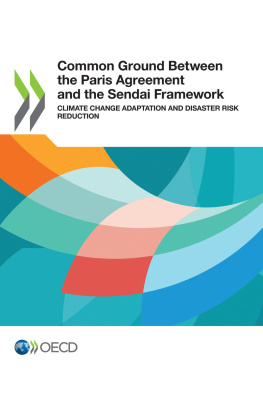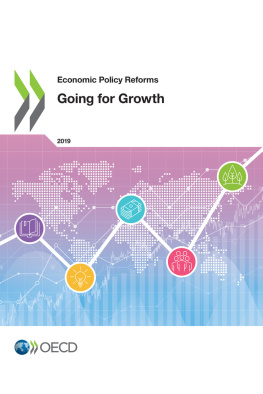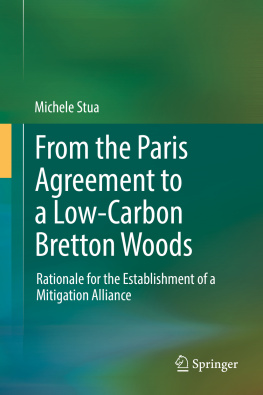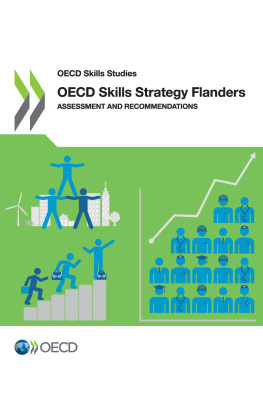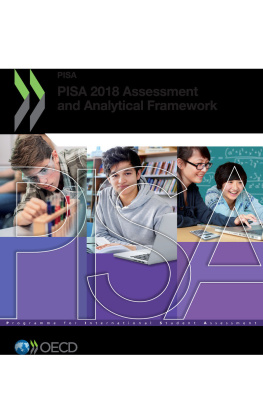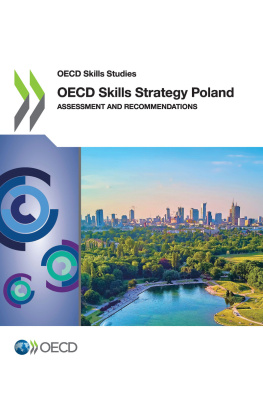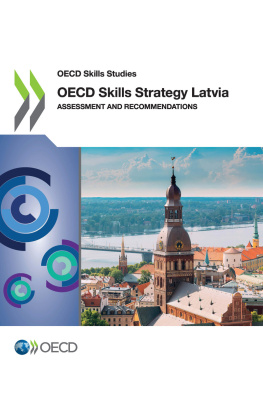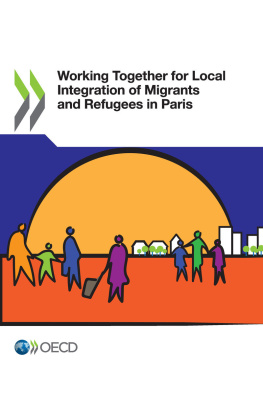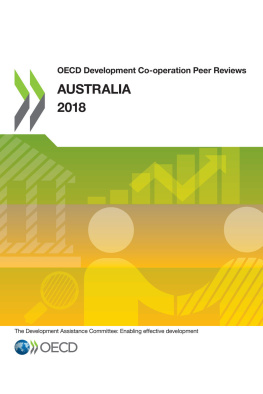OECD - Common Ground Between the Paris Agreement and the Sendai Framework
Here you can read online OECD - Common Ground Between the Paris Agreement and the Sendai Framework full text of the book (entire story) in english for free. Download pdf and epub, get meaning, cover and reviews about this ebook. year: 2020, publisher: OECD Publishing, genre: Home and family. Description of the work, (preface) as well as reviews are available. Best literature library LitArk.com created for fans of good reading and offers a wide selection of genres:
Romance novel
Science fiction
Adventure
Detective
Science
History
Home and family
Prose
Art
Politics
Computer
Non-fiction
Religion
Business
Children
Humor
Choose a favorite category and find really read worthwhile books. Enjoy immersion in the world of imagination, feel the emotions of the characters or learn something new for yourself, make an fascinating discovery.
- Book:Common Ground Between the Paris Agreement and the Sendai Framework
- Author:
- Publisher:OECD Publishing
- Genre:
- Year:2020
- Rating:5 / 5
- Favourites:Add to favourites
- Your mark:
- 100
- 1
- 2
- 3
- 4
- 5
Common Ground Between the Paris Agreement and the Sendai Framework: summary, description and annotation
We offer to read an annotation, description, summary or preface (depends on what the author of the book "Common Ground Between the Paris Agreement and the Sendai Framework" wrote himself). If you haven't found the necessary information about the book — write in the comments, we will try to find it.
OECD: author's other books
Who wrote Common Ground Between the Paris Agreement and the Sendai Framework? Find out the surname, the name of the author of the book and a list of all author's works by series.
Common Ground Between the Paris Agreement and the Sendai Framework — read online for free the complete book (whole text) full work
Below is the text of the book, divided by pages. System saving the place of the last page read, allows you to conveniently read the book "Common Ground Between the Paris Agreement and the Sendai Framework" online for free, without having to search again every time where you left off. Put a bookmark, and you can go to the page where you finished reading at any time.
Font size:
Interval:
Bookmark:
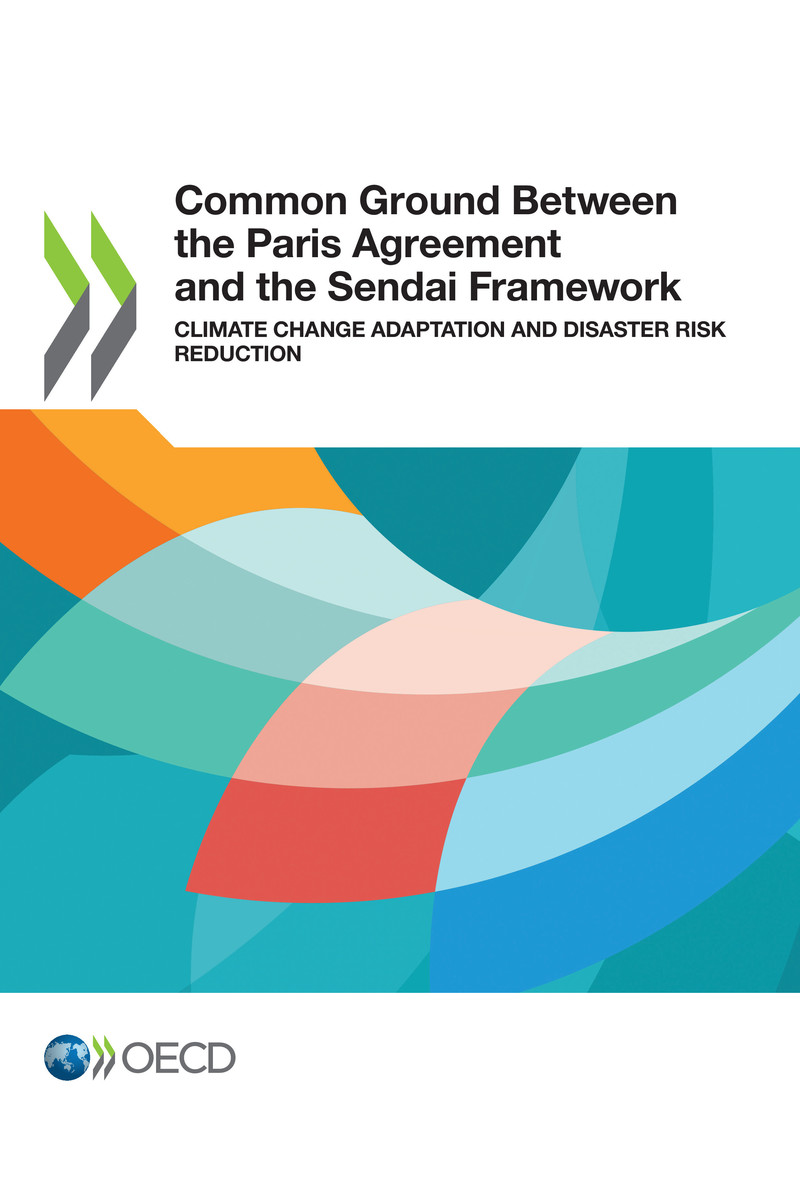
OECD (2020), Common Ground Between the Paris Agreement and the Sendai Framework : Climate Change Adaptation and Disaster Risk Reduction , OECD Publishing, Paris, https://doi.org/10.1787/3edc8d09-en .
The information in this document with reference to Cyprus relates to the southern part of the Island. There is no single authority representing both Turkish and Greek Cypriot people on the Island. Turkey recognises the Turkish Republic of Northern Cyprus (TRNC). Until a lasting and equitable solution is found within the context of the United Nations, Turkey shall preserve its position concerning the Cyprus issue.
The Republic of Cyprus is recognised by all members of the United Nations with the exception of Turkey. The information in this document relates to the area under the effective control of the Government of the Republic of Cyprus.
The quick pace of climate change today is altering and intensifying existing risks with destructive consequences for society, the economy and the environment. Changes in temperature and precipitation are leading to more frequent extreme weather events, wildfires, floods and rising sea levels. Public expectations for governments to act have never been higher.
Interventions to adapt to climate change and reduce disaster risks share common objectives, but too often they are developed and deployed through administrative silos. The wide range of institutions and government officials responsible for managing climate hazard exposures and reducing vulnerability often miss potential synergies and duplicate efforts.
Common ground between the Paris Agreement and the Sendai Framework: Climate change adaptation and disaster risk reduction examines the potential for a more coherent approach to the reduction and management of weather- and climate-related disasters and change. The report highlights the benefits of increased coherence between climate change adaptation and disaster risk reduction through comprehensive and co-ordinated action across public administrations. Informed by the national approaches of Ghana, Peru and the Philippines, it points to the role of both government officials and development co-operation in bridging existing gaps between the two policy areas, highlighting examples of good practice and persistent challenges.
This report will be of interest to government officials with responsibility for the design, coordination or implementation of disaster risk reduction and climate change adaptation policies and programmes. It will inform their efforts to build more coherent approaches across the two policy areas. It will also be of interest to countries that seek to adhere to OECD standards such as the Council Recommendation on Governance of Critical Risks and their commitments under international agreements, including the Paris Agreement on climate change and the Sendai Framework for Disaster Risk Reduction.
Common ground between the Paris Agreement and the Sendai Framework: Climate change adaptation and disaster risk reduction is a joint output of the OECD Development Co-operation Directorate, Environment Directorate and Public Governance Directorate. This report was drafted by Lisa Danielson, Takayoshi Kato, Nicolina Lamhauge and Charles Baubion, with substantive contributions by Heiwon Shin, Mercedes Aguerre and Teresa Deubelli.
The report greatly benefited from input provided by officials of the three case study countries, including Antwi-Boasiako Amoah (Ghana Environmental Protection Agency), Silvia Cristina Rodrguez Valladares (Ministry of Environment of Peru), Blanca L. Arstegui Snchez (Presidency of the Council of Ministers of Peru), Remedios Soriano-Endencia (National Economic and Development Authority of the Philippines) and their teams.
The authors appreciate valuable comments and input provided Angie Daz (International Institute for Sustainable Development), Sophie De Coninck (UN Capital Development Fund), Michael Mullan (Global Centre on Adaptation), Angela Yayra Kwashie from (UN Capital Development Fund) and Zinta Zommers (UN Office for Disaster Risk Reduction).
The authors would also like to thank OECD colleagues for their review and input: Simon Buckle, Juan Casado Asensio, Brooke Demchuk, Carolyn Neunuebel, Mikaela Rambali, Jack Radisch, Jens Sedemund and Leigh Wolfrom. The production benefited from the assistance of Sama Al Taher Cucci, Sabrina Bouldi, Stacey Bradbury, Stephanie Coic, Liv Gaunt, Ines Reale and Andrea Uhrhammer.
The authors are also grateful for the oversight, review and comments by the OECD Network on Environment and Development Co-operation (ENVIRONET) of the Development Assistance Committee (DAC), the Working Party on Climate, Investment, and Development (WPCID) of the Environment Policy Committee (EPOC), and the High Level Risk Forum (HLRF) of the Public Governance Committee (PGC), as well as for feedback received at the Workshop on Strengthening Climate Resilience jointly organised by the OECD and the Global Centre on Adaptation on the 25 th of October 2019 in Paris.
Financial support from the German Federal Ministry for Economic Cooperation and Development (BMZ), and co-ordination and input provided by the Climate Policy Support Programme of the Deutsche Gesellschaft fr Internationale Zusammenarbeit (GIZ) GmbH, in particular from Lena Klockemann, Elisa Romanato and Na-Hyeon Shin, is gratefully acknowledged. The report is a contribution, supported by Germany, to the G20 Adaptation Work Programme and was presented at the Climate Sustainability Working Group (CSWG) meeting in Bangkok on 18-19 November 2019.
Font size:
Interval:
Bookmark:
Similar books «Common Ground Between the Paris Agreement and the Sendai Framework»
Look at similar books to Common Ground Between the Paris Agreement and the Sendai Framework. We have selected literature similar in name and meaning in the hope of providing readers with more options to find new, interesting, not yet read works.
Discussion, reviews of the book Common Ground Between the Paris Agreement and the Sendai Framework and just readers' own opinions. Leave your comments, write what you think about the work, its meaning or the main characters. Specify what exactly you liked and what you didn't like, and why you think so.

